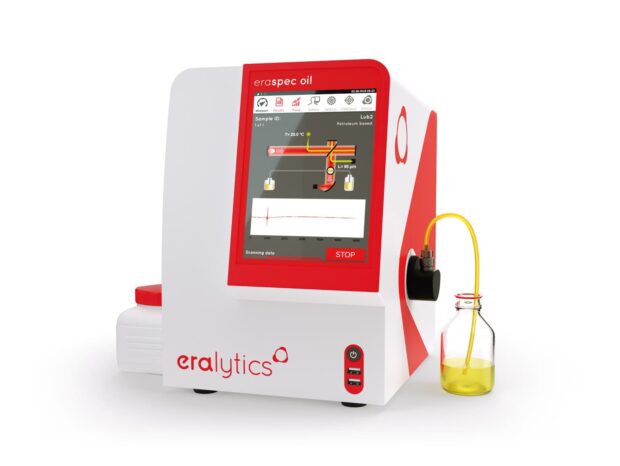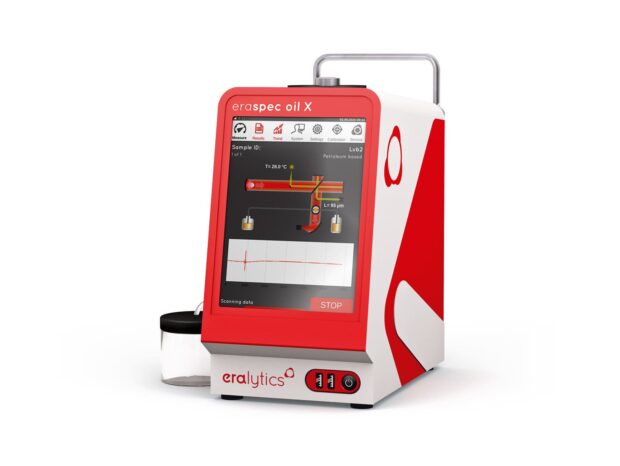Standard Test Method for Condition Monitoring of Nitration in In-Service Petroleum and Hydrocarbon-Based Lubricants by Trend Analysis Using Fourier Transform Infrared (FT-IR) Spectrometry.
Get more information about the standard at ASTM D7624-22.
ASTM D7624 is a standard test method for monitoring nitration levels in in-service petroleum and hydrocarbon-based lubricants. Utilizing Fourier Transform Infrared (FT-IR) spectrometry, this method facilitates trend analysis to detect the accumulation of nitration by-products, which is crucial for assessing machinery health and lubricant performance.
Details
The ASTM D7624 test method employs FT-IR spectrometry to detect the build-up of nitration by-products in in-service lubricants. This method applies to the monitoring of nitration in gasoline and natural gas engine oils, as well as other lubricants susceptible to nitration by-products formed through combustion processes or other mechanisms. It is specifically designed for petroleum and hydrocarbon-based lubricants and is not applicable to ester-based oils, including polyol esters or phosphate esters.
Industries and Applications
ASTM D7624 is significant in various industries and applications, including:
- Automotive industry: Engine manufacturers and service providers utilize this method to monitor oil quality in gasoline and natural gas engines, ensuring optimal performance and longevity
- Power generation: Facilities operating natural gas-fired turbines employ this standard to assess lubricant condition, preventing unscheduled downtimes and maintaining efficient energy production
- Industrial manufacturing: Machinery reliant on petroleum-based lubricants is monitored for nitration levels to avert operational disruptions and extend equipment lifespan
- Oil analysis laboratories: These entities offer testing services based on ASTM D7624, providing critical data to clients for informed maintenance decisions

